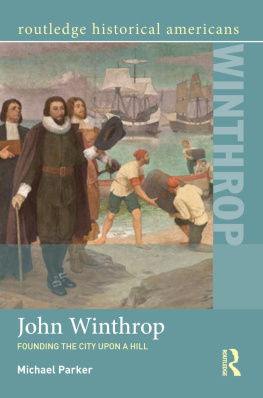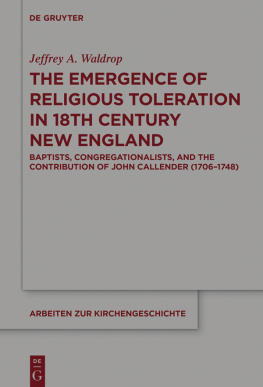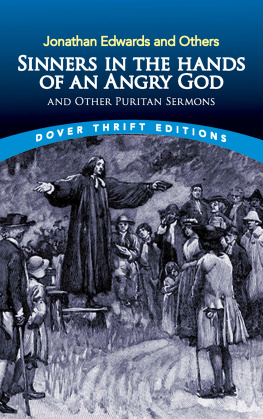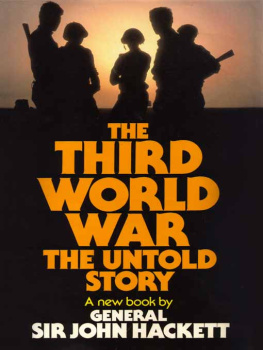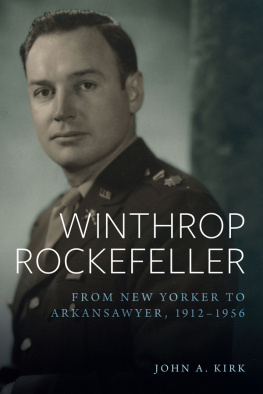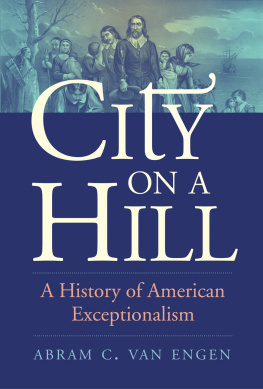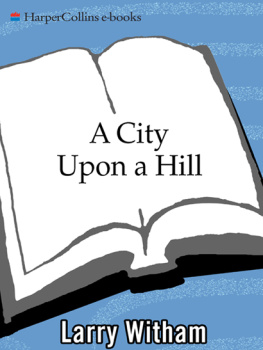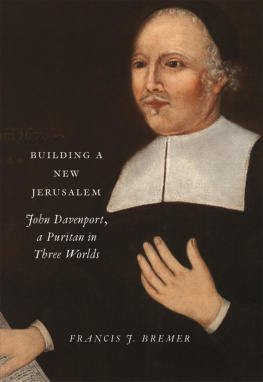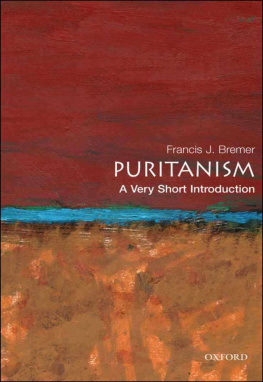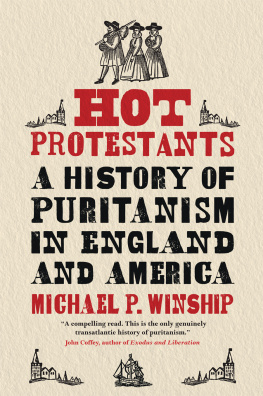JOHN WINTHROP
Puritan lawyer, politician, and lay theologian John Winthrop departed from England in 1630 when King Charles I succeeded in blocking all hopes of passing puritan-inspired reforms in Parliament. As the governor of the Massachusetts Bay Colony, Winthrop came to the New World in hopes of creating an ideal puritan community. He is remembered for his role in organizing the initial puritan migration to America and in leading the colony in Massachusetts during its first two crucial decades. He is also noted for delivering the most famous lay sermon in American history, in which he proclaimed that New England would be a city upon a hill.
In John Winthrop: Founding the City upon a Hill, Michael Parker examines the political and religious history of this iconic figure. In a concise narrative, bolstered by primary documents including portraits, speeches, and journal excerpts, John Winthrop introduces students to puritanism, the colonial world, the Pequot War, the Antinomian Controversy, and the concept of American exceptionalism.
Michael Parker is the Director of Graduate Studies and Professor of Christian History at the Evangelical Theological Seminary in Cairo, Egypt.
ROUTLEDGE HISTORICAL AMERICANS
SERIES EDITOR: PAUL FINKELMAN, ALBANY LAW SCHOOL
Routledge Historical Americans is a series of short, vibrant biographies that illuminate the lives of Americans who have had an impact on the world. Each book includes a short overview of the persons life and puts that person into historical context through essential primary documents, written both by the subjects and about them. A series website supports the books, containing extra images and documents; links to further research; and where possible, multimedia sources on the subjects. Perfect for including in any course on American History, the books in the Routledge Historical Americans series show the impact everyday people can have on the course of history.
Woody Guthrie: Writing Americas Songs
Ronald D. Cohen
Frederick Douglass: Reformer and Statesman
L. Diane Barnes
Thurgood Marshall: Race, Rights, and the Struggle for a More Perfect Union
Charles L. Zelden
Harry S. Truman: The Coming of the Cold War
Nicole L. Anslover
John Winthrop: Founding the City upon a Hill
Michael Parker
John F. Kennedy: The Spirit of Cold War Liberalism
Jason K. Duncan
Forthcoming:
Laura Ingalls Wilder: American Writer on the Prairie
Sallie Ketcham
Ronald Reagan: Champion of Conservative America
James Broussard
Bill Clinton: Building a Bridge to the New Millennium
David H. Bennett
Sojourner Truth: Prophet of Social Justice
Isabelle Kinnard Richman
Woodrow Wilson: Progressive President or Moral Crusader?
Kelly A. Woestman
JOHN WINTHROP
FOUNDING THE CITY UPON A HILL
MICHAEL PARKER
Please visit the books companion website at http://www.routledge.com/cw/historicalamericans/
First published 2014
by Routledge
711 Third Avenue, New York, NY 10017
Simultaneously published in the UK
by Routledge
2 Park Square, Milton Park, Abingdon, Oxon OX14 4RN
Routledge is an imprint of the Taylor & Francis Group, an informa business
2014 Taylor & Francis
The right of Michael Parker to be identified as author of this work has been asserted by him in accordance with sections 77 and 78 of the Copyright, Designs and Patents Act 1988.
All rights reserved. No part of this book may be reprinted or reproduced or utilised in any form or by any electronic, mechanical, or other means, now known or hereafter invented, including photocopying and recording, or in any information storage or retrieval system, without permission in writing from the publishers.
Trademark notice: Product or corporate names may be trademarks or registered trademarks, and are used only for identification and explanation without intent to infringe.
Library of Congress Cataloging-in-Publication Data
Parker, Michael, 1957
John Winthrop : founding the city upon a hill / Michael Parker.
pages cm. (Routledge historical americans)
Includes bibliographical references and index.
1. Winthrop, John, 15881649. 2. GovernorsMassachusettsBiography. 3. PuritansMassachusettsBiography. 4. MassachusettsHistoryColonial period, ca. 16001775. 5. PuritansMassachusettsHistory17th century. I. Title.
F67.W79P37 2013
974.02092dc23
[B] 2013014465
ISBN: 978-0-415-81811-7 (hbk)
ISBN: 978-0-415-81812-4 (pbk)
ISBN: 978-0-203-40836-0 (ebk)
Typeset in Minion
by Apex CoVantage, LLC
For Joanne
CONTENTS
For we must consider that we shall be as a city upon a hill, the eyes of all people are upon us.
John Winthrop
John Winthrop was the central political leader in the first generation of New England colonization. A visionary conservative and an idealistic puritan with a gift for practical and moral leadership, he helped to make possible, amidst a swirl of divergent and countervailing forces, the successful founding of the Massachusetts Bay Colony. What is perhaps most compelling about Winthrop is his belief in New England as an elect society that was to play a special role in providential historyan idea that eventually evolved into the modern sense of American mission, or American exceptionalism. While implicit in much of his writings, it is most clearly and memorably enunciated in his lay sermon A Model of Christian Charity. Here we see an expression of a conservative idealism that has been with us throughout American history and has led to some of our noblest aspirations: the desire to create an ideal community of justice and love, to be a godly people of the highest moral and spiritual commitment, to lead the world by shining example.
Winthrops leadership also had a dark side, which, given his generally winsome character, may leave contemporary observers puzzled. He opposed the democratic elements in his community; upheld aristocratic rule by divine right; promoted sumptuary laws (laws regulating extravagance); in part directed the first attempted genocide by Englishmen against a Native American tribe; and punished dissenters with imprisonment, fines, mutilation, and banishment. Moreover, his avowal of New England puritans as a chosen people, while an often elevating creed and one that inspired subsequent generations of Americans to embrace a belief in their own special status and role in the world, is a notion that at various instances in Winthrops lifetime and later in American history produced a strand of moral blindness and appalling arrogance. Americans seem inescapably drawn to and lifted up by the idealism of the message but dashed down and debased by its inevitable consequences. Winthrop is essential to understanding this phenomenon, not merely because he helped to create it but because he was the first truly great American who was both ennobled and marred by it.
For some, however, what is perhaps most troubling about Winthrop is his very puritanism and, hence, his puritan-inspired attempts to create an ordered freedom in the wilderness. The dislike of puritans, which began in their own time, has continued long after they have passed from the scene. In the nineteenth century, Wendell Phillips commented, The Puritans idea of hell is a place where everybody has to mind his own business. And in the twentieth century, H. L. Mencken was still fulminating against puritanism as the haunting fear that someone, somewhere is happy. Even in our own day, while the adjective

